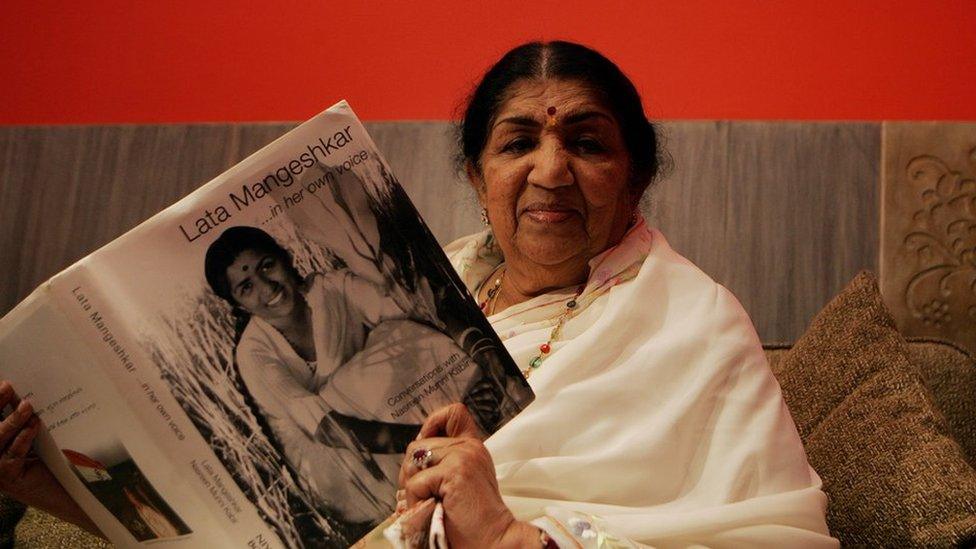Shreya Ghoshal: We need to celebrate Lata Mangeshkar's legacy
- Published
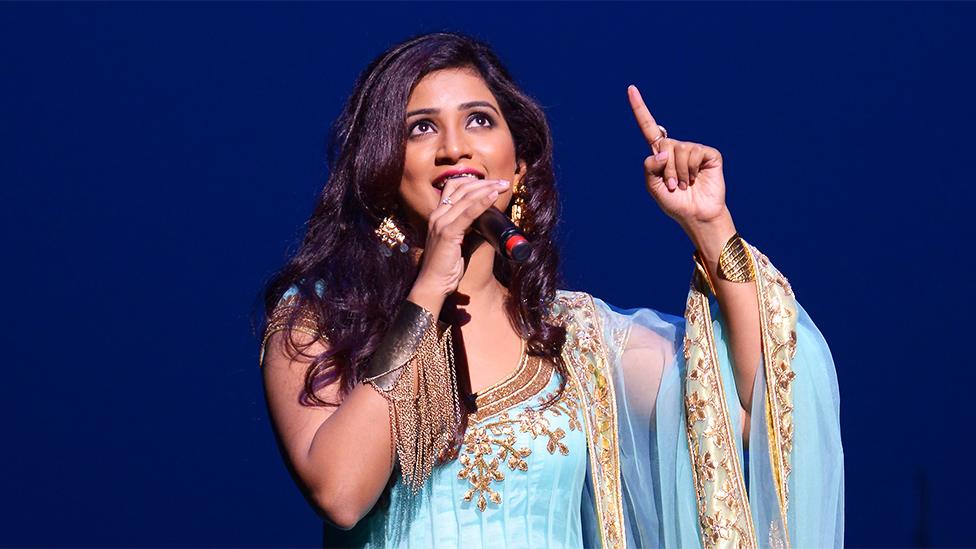
Shreya Ghoshal's recent tour performances in the UK have had millions of views on TikTok
Shreya Ghoshal is regarded by some as India's greatest living female singer.
But it might surprise you to hear her say she "needs to do more", despite having millions of fans around the world, multiple hit songs and acclaim within Bollywood and beyond.
In an exclusive interview with BBC Asian Network, she says she feels a sense of responsibility to the next generation of singers.
Shreya's also followed in the path of another - Lata Mangeshkar, one of India's most beloved singers, who died in 2022.
Since then, Shreya's been touted as the one to take on the mantle of the legendary performer, whose extraordinary career spanned more than half a century.
Lata's voice soundtracked hundreds of Bollywood films and she recorded thousands of songs in 36 languages.
Shreya says she "refuses to process" the comparisons, saying they go "in one ear and out the other".
But she does insist it's important to recognise those that came before her, continuing their legacies while forging her own.
"I'm sure there's a generation that's not heard Lata Ji and I am probably trying to bridge that gap for them to access her," she tells the Beyond Bollywood show.
"That's why I keep singing her songs and talking about her, because we need to celebrate greats."
'Finding my place around the world'
The 39-year-old recently performed packed out shows in London and Manchester on the UK leg of her global All Hearts Tour, with concert videos getting millions of views on TikTok.
It was a setlist which included a medley of classic songs by legendary artists like Mohammad Rafi, Lata Mangeshkar and Asha Bhosle.
Shreya says she looks up to Lata and Asha Bhosle in particular as her "gurus".
"I think I'm taking a little bit of that in my singing and giving it to the next generation, so they feel the magic that they have given us," she says.
"I have heard so many artists in the world and I know there is too much perfection and beauty in the work that these legends have done.
"I get inspired by them in every step of my life, but I know there is a lot more to do - and I'm not being humble. That's the truth."
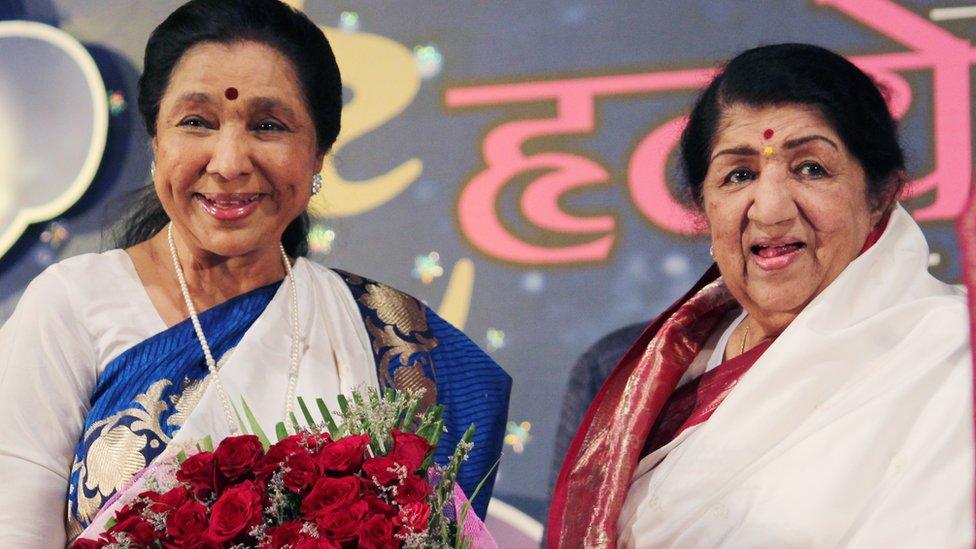
Indian singers Asha Bhosle and her late sister Lata Mangeshkar have collectively sung thousands of songs
Bollywood in recent years has become dominated by electronic music, with melodies similar to pop and mainstream dance.
Shreya was raised on classics recorded from the 1960s through to the 90s, when songs were recorded with full orchestras and incorporated a blend of Western classical and traditional Indian styles.
She says it's important to her to incorporate these influences to ensure young music lovers and aspiring singers do not forget the roots of Asian music.
"It is different," she says.
"Our subcontinent has a very old history of music, from classical, to folk, to our film music and it's distinctly different with its nuances.
"This is the legacy which makes this subcontinent feel so proud of their heritage."
Allow YouTube content?
This article contains content provided by Google YouTube. We ask for your permission before anything is loaded, as they may be using cookies and other technologies. You may want to read Google’s cookie policy, external and privacy policy, external before accepting. To view this content choose ‘accept and continue’.
Shreya reflects on her rise in music, which can be charted back to the age of four - when she began learning music and classical singing with her parents.
By the age of 12 she won the children's version of reality TV singing competition Sa Re Ga Ma.
Through the show she was noticed by renowned film director and music composer Sanjay Leela Bhansali, who asked her to sing on the soundtrack of his 2002 blockbuster hit film Devdas.
"Those days I was so nervous, I came from a small town, all I knew was to keep my eyes down and just sing," she says.
"I never thought it would catapult me to the mainstream where I am today."
In recent years, things have come full-circle, with Shreya herself now appearing as a talent show judge on Indian Idol.
Thinking about her 22 years in the industry, she says only now is she "finally living in the moment".
"Up until a couple years ago, I was still trying to find my foothold in the industry and the kind of music I want to do," she says.
"Now I'm just trying to find my place in the industry, not just the Indian industry, but around the world."
Listen to the full interview on Beyond Bollywood with Haroon Rashid on BBC Asian Network from 11:00 on 24 February.


- Published17 February 2024
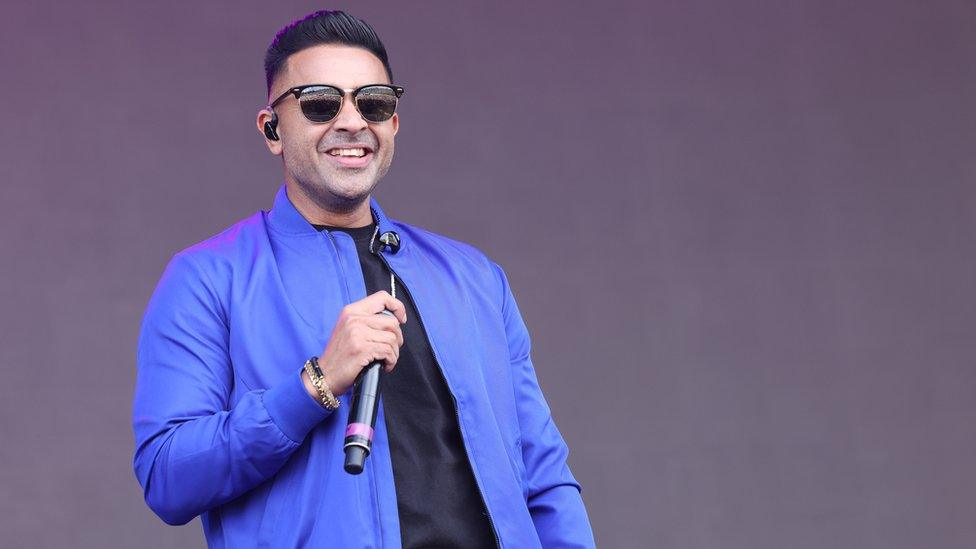
- Published25 November 2023
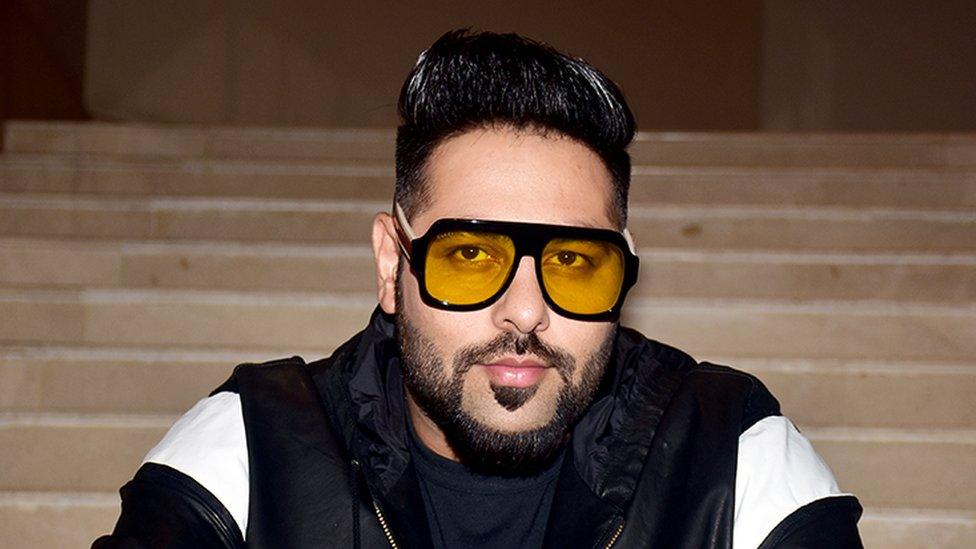
- Published6 February 2022
